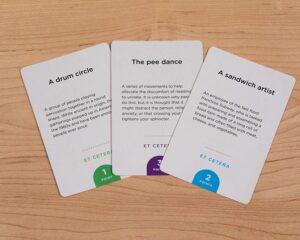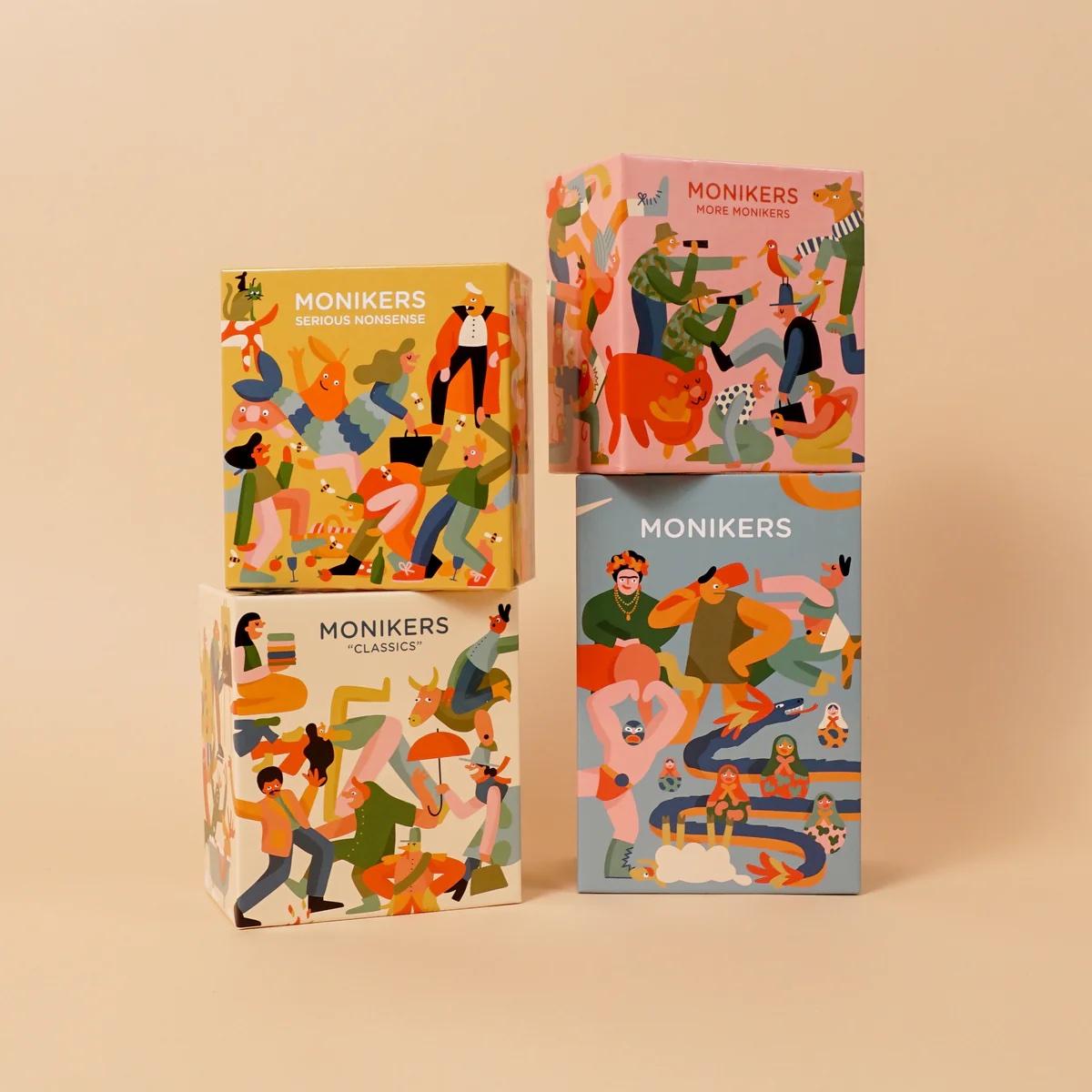Monikers is a team vs. team card game that involves players describing different objects/people/places written on cards to their team in hopes that their team guesses them. The game was developed by CMYK and is targeted towards all ages (although it does require some pop culture knowledge). This game is similar to the game my team is developing for Project 1. When performing competitive analysis between the two, I had two questions in mind. First, I wanted to learn how Monikers balances the possibility with the challenge of guessing correctly. Second, I wanted to understand how the game keeps players engaged over the course of many rounds. While playing the game, I found that both of these tasks were achieved mainly through carefully thought-out game resources and a procedure that encourages fun as challenge. Although both of these successes are useful to understand, my team’s project aims to take the principle of “fun as challenge” displayed in Monikers and add more fellowship and expression.
Monikers involves three rounds of play. In the first round, players can describe the object on their card using any word except the object itself. In the second round, players only have one word to describe the object. And in the last round, players must act out the card with no words. The set of cards used for each round is the same, so players have some notion of their options on the second and third rounds. Each card has a one through five point value for guessing that card correctly in a round, and the team with the highest cumulative point value at the end of the game wins.
My team’s project is also a team vs. team round-based game that involves guessing prompts written on cards. However, rather than just have three distinct rounds, we are planning on implementing special “challenges” that dictate the limitations that the describer must abide by while getting their teammates to guess their prompt. In our game, this feature aimed to add variety to the gameplay experience. Understanding the role of rounds in Monikers is useful to keep in mind as my team develops more specific game procedures. We have to think about what procedure we can replace rounds with that create equal amounts of maintained engagement.
In terms of the resources given to players in Monikers, each guess card contains a description of the word on the card. See an example below this paragraph. I found this to be incredibly useful. If a player did not know the word on a card, they could always look at the card’s description before trying to describe it. This greatly reduces the stress of the game. Players have a resource to fall back on. Similarly, if a player did not know what a card was, even after reading the description, they could skip to the next one. This rule had a similar effect of reducing gameplay stress. Adding these two resources/rules to my team’s game would improve the dynamic of the game, making it more likely that players can experience the game’s types of fun.

I found that the runtime dynamic of Monikers tended to be much more focused on conquering the challenge of different rounds. Although I felt a fellowship to my team, I was constantly thinking of how I could best describe words, not how I could connect with my fellow players. This did keep me engaged, however my team’s game is meant to be more about creating connections and learning about your fellow teammates. Rather than having our guess cards contain random words, we are thinking of populating our deck of cards with different prompts or scenarios to put players in together. By doing this, we are hoping to create a dynamic more focused on the players, not the cards.
As a whole, Monikers is a great example of the procedures, rules, and resources required to create an engaging game based on challenge and fellowship. My team’s goal moving forward is to alter the formal elements of this game to produce a game that focuses more closely on fellowship and expression, while still keeping players engaged in the same way that Monikers does.
Images from https://www.cmyk.games/products/monikers-more-monikers.



